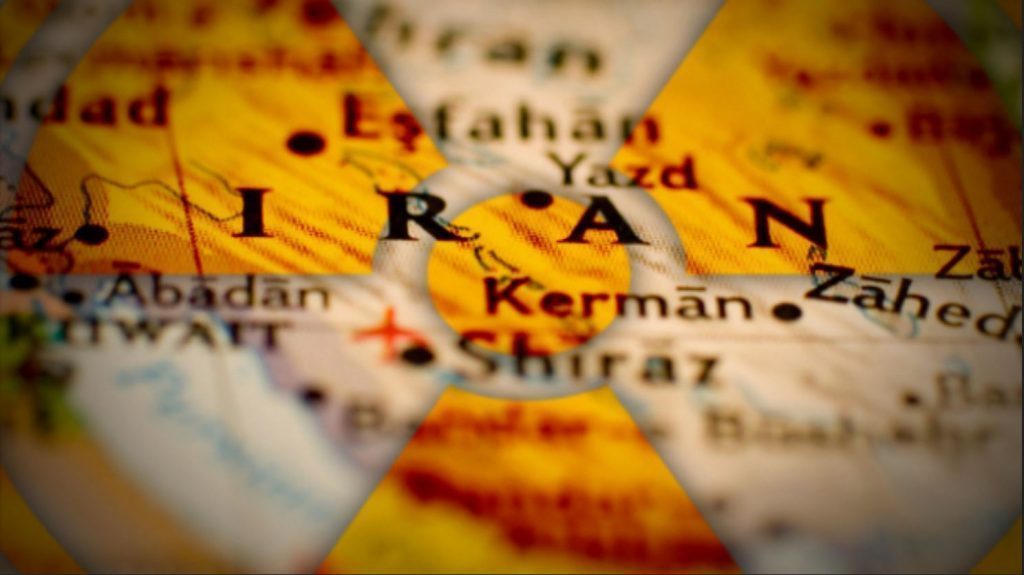 By Aaron Kesel
By Aaron Kesel
The leader of Iran, Ayatollah Ali Khamenei, has banned holding any direct talks with the United States, as tension between the U.S. and Iran increases, with the country testing a next-generation short-range missile.
“I ban holding any talks with America … America never remains loyal to its promises in talks … just gives empty words … and never retreats from its goals for talks,” Khamenei was quoted saying by TV.
This comes after an offer last month by U.S. President Donald Trump calling for talks with no preconditions with Tehran.
Iran has openly rejected that call for negotiation with its leader denouncing any talks with the U.S.
Iran’s defense minister unveiled the next generation of Tehran’s Fateh Mobin a short-range ballistic missile, France 24 reported.
“As promised to our dear people, we will not spare any effort to increase the missile capabilities of the country and we will certainly increase our missile power every day,” the minister, Brigadier General Amir Hatami, said.
Hatami described the new version of the Fateh Mobin as “100-percent domestically made… agile, stealth, tactical (and) precision-guided.”
“Be sure that the greater the pressures and psychological warfare against the great nation of Iran, our will to enhance our defence power in all fields will increase,” he added.
The missile was not nuclear so, therefore, didn’t breach the Iranian accord.
President Donald Trump recently pulled out of the 2015 nuclear deal with Iran and world powers in May. Trump has called for a new agreement that restricts Iran’s missile capabilities and regional interventions.
Last week, the Trump administration reimposed economic sanctions against Iran that were lifted under a 2015 nuclear accord. Among those sanctions included bans on the sale or transfer to or from Iran of graphite and metals such as aluminum; bans on the export of Iranian carpets and food such as pistachios to the U.S.; and a prohibition on trading of Iranian gold.
Russia and Iran responded by signing a deal with three other ex-Soviet nations on how to divide up the oil and gas resources of the Caspian Sea.
Further moves being made in the past few months include China’s state-owned CNPC oil replacing France’s Total in an Iranian gas project when they leave the South Pars field, as well as China creating a new train route to Iran, Activist Post reported.
“The possibility of Total’s pullout is quite high now, and in that scenario, CNPC will be ready to take it over fully,” Reuters quoted an official.
Europeans have objected to Trump leaving the Iran deal and have been working with Iran to save the deal.
This means that all hope lies in the hands of the Europeans to keep the peace in this situation.
Whereas if Europe does save the Iran deal, then the U.S. has previously threatened sanctions on European companies that do business with Iran.
The U.S. reiterated that promise with the U.S. ambassador in London urging Britain to back President Donald Trump in pulling out of the Iran nuclear agreement, stating a united front is the best way to persuade Tehran to change its course or risk “serious trade consequences” for UK businesses.
Ambassador Robert Wood Johnson wrote in the Sunday Telegraph that “we are asking global Britain to use its considerable diplomatic power and influence and join us as we lead a concerted global effort towards a genuinely comprehensive agreement.”
The European Union updated a 1996 blocking statute that seeks to protect European companies from any penalties imposed by the United States for doing business with, or in, Iran. In turn, the measure threatens any companies with penalties if they comply with the American sanctions.
The law was originally passed as a means to protect companies against penalties imposed for doing business with Cuba, Libya and Iran — all of which were under American sanctions in 1996.
In short, it’s a cluster f*** mess…
U.K., France, Russia, China, Germany and the European Union, which also signed the deal, have criticized Trump’s decision and continue to back the agreement with Iran.
In April, earlier this year, Iran dropped the U.S. dollar for the Euro in foreign trade transactions. A huge deal…
One month prior, Iran did the unthinkable by banning the U.S. dollar in trade, setting the groundwork for replacing it in foreign trade transactions.
It’s the same move that has been in the works and was attempted last year when Trump sanctioned the country. Mere days after Iran said it would stop using the U.S. dollar in response to President Trump’s previous travel ban.
That means that Iran finally pulled the trigger and dumped the U.S. dollar. Israel responded with “Intel” that Iran has nuclear weapons, as Activist Post previously reported.
As a candidate, Trump essentially said he would have no problem going to war with Iran.
“With Iran, when they circle our beautiful destroyers with their little boats and they make gestures at our people that they shouldn’t be allowed to make, they will be shot out of the water,” Trump said.
The remark was in response to an incident when Iranian patrol boats approached U.S. vessels in the Persian Gulf.
Trump’s comment is a contradiction of his earlier “unabashedly noninterventionist approach to world affairs,” as The Washington Post documented.
Aaron Kesel writes for Activist Post. Support us at Patreon. Follow us on Minds, Steemit, SoMee, BitChute, Facebook and Twitter. Ready for solutions? Subscribe to our premium newsletter Counter Markets.

“Our beautiful destroyers”? What an oxymoron emanating from the mouth of a true moron!
Sanction THIS!